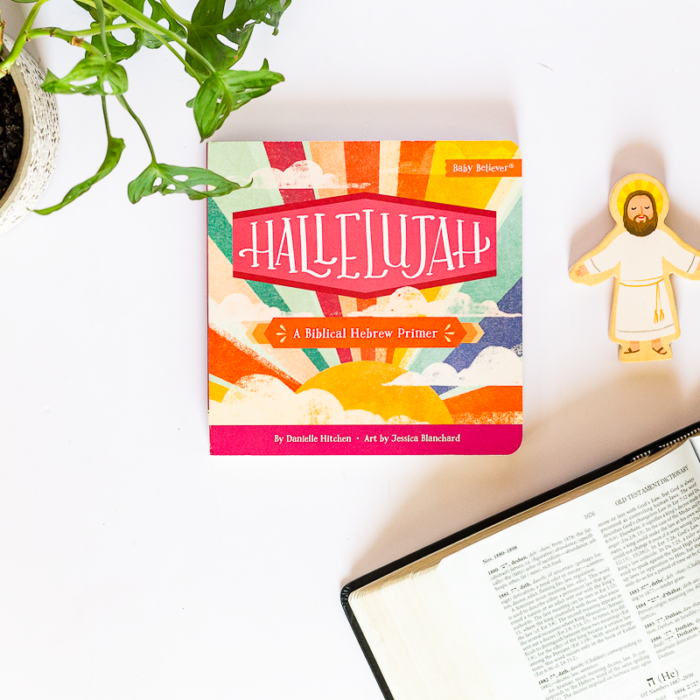This post contains affiliate links
Please note: I read the electronic version of Girl, Wash Your Face via the Hoopla app. The page numbers referenced in this review may not perfectly match up with the page numbers in the physical book.
Girl, Wash Your Face by lifestyle blogger Rachel Hollis isn’t a book I was planning on reading. Of course, I’ve noticed all the hype the book has received. It’s hard not to when it’s popularity has spread rapidly over social media and the book quickly climbed to a top spot on The New York Times bestseller list. Thomas Nelson, the book’s publisher, categorized the book as Self-Help/Motivational & Inspirational. My MO is to generally avoid this genre as I consider it full of worldly advice that is truly unhelpful and ultimately deceptive. I also consider it to be full of things that sound enticing but aren’t practical – what I refer to as, “fluff.” I first had reservations about Girl, Wash Your Face when I read the book’s description on the Thomas Nelson website. The description mentions nothing about God or Scripture so that was a red flag to me, especially from a book released by a “Christian” publisher. The second red flag for me was reading Rachel’s bio on her blog. Her bio also mentioned nothing of her love for the Lord and His word, which struck me as odd. I had some friends ask about my thoughts of Girl, Wash Your Face since I review Christian books so I figured it would be helpful to read the book, see how it compares to the ultimate Christian book (the Bible), and share my findings.
Based on conservative Christian reviews and opinions I’ve seen floating around the internet (which have largely come from individuals who haven’t actually read Girl, Wash Your Face), I feel the need to preface my review with some hills that I’m not going to die on. These are:
- Rachel’s Instagram bio – In her
bio she states nothing about her love for the Lord. Initially, I was unsure about this but I know many people who love the Lord and don’t include anything about that in their Instagram bio. I also know that Instagram limits users to a smaller number of characters in the bio section. One review I read stated something like, “Rachel’s handle, @msrachelhollis, is very telling.” The reviewer was implying that we can infer much from this because it says “Ms.” rather than “Mrs.” This critique made me roll my eyes as I feel it is very far-fetched and perhaps a bit too critical. - The fact that she’s a working mother – In conservative Christian circles there seems to be a sinful sense of elevation and pride in being a stay at home mom. If one is able to stay home with their children, that is great, but it doesn’t make one more holy than another and it actually isn’t a Biblical requirement. The idea of women staying home comes from Titus 2:5 in which older women in the church are instructed to teach younger women in the church how to be workers at home. This verse is not a command for women to only work at home. 1 Timothy 5:14 refers to women doing this as women who are, “managing their households.” This can look very different from woman to woman or home to home. Some examples of what this might look like can be found in Proverbs 31:10-31 which provides a list of actions a Godly woman might perform as an outward manifestation of her love for God and others. Proverbs 31 even mentions that the ideal Godly woman sometimes works outside of the home (see verses 13-14, 16, 24). Also, keep in mind, the Proverbs 31 woman is not an actual woman. Rather, she is an idea created by the mother of King Lemuel who wanted her son to learn what to look for in a woman he would someday consider marrying. Considering these clarifications, I’m not bothered that Rachel works and also has a family just like many Godly women I know.
The subtitle of Girl, Wash Your Face reads, “Stop Believing the Lies About Who You Are So You Can Become Who You Are Meant to Be.” Since the premise of the book is about not believing lies, I found it interesting that throughout the introduction and much of the book, Rachel touts multiple times some form of the expression, “You are in control.” This statement in and of itself is a huge lie and very deceiving. Recalling the account of when sin entered the world in Genesis 3, we learn that when Eve bought the lie that she was in control, (instead of trusting God to be in control) there were dire consequences including separation from God and death.
Ultimately, the truth is that we are not in control. Not only is an all-powerful, sovereign King ruling the universe, but we are also governed by laws of the land that immediately limit the extent of the control we may think we have. Regarding God being in control, Rachel stated in the Intro, “As a Christian, I grew up learning that God was in control, that God had a plan for my life, and I believe in the marrow of my bones that this is true.” I truly began to question this though because she reported one time that she believes that God is in control while stating multiple times that you as an individual have control over what happens in your life
Based off of what I read in Girl, Wash Your Face and this recent, viral Facebook post of Rachel’s (similar to the sentiments expressed in Chapter 19), she writes in a way that appeals to all. Were the book released by a secular publisher, I would have no problem with this, in fact, I would expect it. However, since Rachel’s book comes from a publisher who claims they are, ” . . . committed to one central mission: inspiring the world by meeting the needs of people with content that promotes biblical principles and honors Jesus Christ,” I was disheartened because this book doesn’t honor Christ and contains scant biblical principles.
When Scripture was used, it was done so to support Rachel’s message so it was often out of context or just incorrect. Some examples of this include her use of what appears to be Ephesians 5:13 (no reference or translation was mentioned and performing a Google search of Rachel’s version of the verse yielded no exact results). She wrote, “The Bible says, let that which is in the darkness be brought into the light. When things are allowed to sit in the darkness, when we’re afraid to speak them aloud, we give them power. The darkness lets those fears fester and grow until they become stronger over time.”
According to Rachel, this passage is about bringing fears to light so they will no longer have a role to play when making decisions. However, if you read Ephesians 5:13-14 in context, it is actually about sin being exposed.
Another example of Rachel’s misuse of Scripture is found on page 189 with the term “fruits of the Spirit” which biblically is “fruit of the Spirit” (this is the manifestation of the Spirit at work in the life of a believer which produces fruit and that fruit contains the 9 characteristics described in Galatians 5:22-23). Rachel encourages women to pick one characteristic and work toward cultivating it, however, one cannot just become more like Christ by working on one of these 9 characteristics.
If one has not been changed by God through repentance and trust in Christ alone, the Spirit is not at work in them. Such an individual may attempt to work on these areas and may see improvement outwardly but will never experience a true, lasting change of heart apart from Christ. I wish Rachel’s book included this information since there are so many non-Christian women reading it. It is disheartening to know that many will walk away having read this “Christian” book and not know about the hope in Christ for salvation.
I would describe Girl, Wash Your Face as largely autobiographical with tidbits of advice mixed in based on Rachel’s personal experiences. Her experiences seem to be the standard for the help she offers rather than Scripture. Upon reading Rachel’s bio on her blog, I was appalled to find a post she wrote titled, “I Got A Boob Job.” I read the post and while I don’t know whether or not getting a boob job is in and of itself inherently sinful, I had to question whether or not the way Rachel went about getting it and posting about it, was discerning and wise. Within the post, there is no mention of prayer, considering Scripture, or seeking counsel which I found to be very concerning. I wasn’t going to include my thoughts about that post in this review since it is about Rachel’s book but I found the same lack of discernment in Chapter 7 titled, “The Lie: I’m Bad At Sex.”
Rachel begins the chapter by explaining, “I’m going to talk about sex as a married, Christian woman, and I hope it’ll be okay.” Yet the chapter is chock full of her own personal standards about sex and inappropriate, tactless quips about what sex looks like in her marriage. On page 126 she wrote, “We do it more than any married couple you know. . . When it’s really good, why would you not go at it like a couple of howler monkeys whenever you can?” This may certainly be true for Rachel and her husband Dave (who she wrote was uncomfortable with her writing the chapter) but is it appropriate and necessary for the world to know? Probably not. Considering the language used in
Sex is, indeed, for married couples to enjoy but the language with which this is expressed isn’t rude or crass. When the Bible refers to sex in the marital relationship between a husband and wife (the way God created it to be) there is also expressed a sense of intimacy and privacy in which others aren’t invited in to know unnecessary details. I found this chapter to be a bit shocking and thought the worst of it was over only to turn the page where there were a few more tidbits of the same tone. For the sake of decency, I’ve decided not to include all of them in this review.
An additional concern within the same chapter is Rachel’s use of the term “partners,” (pg. 133) because this is a broad term whereas the Bible speaks specifically of sex between a married man and woman. Although, I suppose I should have expected this considering Rachel and her husband lead a marriage conference, “For couples in a romantic relationship. . . from every walk of life, every kind of background, every religion, every orientation, every political affiliation, every season.” At the conclusion of this chapter, the first bit of advice Rachel offers is, “I redefined sex in my own mind.” She elaborates, “I decided to change sex to what I thought sex was . . .This might not be what sex is for you, your friends, or the Holy Ghost and all the saints; but going forward I decided that sex was supposed to be a fun experience that would always be more compelling than whatever else I could be doing.” I was disappointed to learn that Rachel’s view of sex is based on her own definition rather than God’s.
Her goal of making sex more compelling than anything else she could be doing sounded almost idolatrous which I also found concerning. Rachel does discourage readers from using pornography which I am thankful for. The third bit of advice Rachel offers in this chapter is, “I read Hebrews 13:4.” I thought perhaps, things were looking up as there was finally a reference to Scripture but within this point, she wrote, “. . . If it turns you on and doesn’t hurt you, I say go for it!” Sigh. She also said, “I’m sure someone who studied theology will tell me that this actually means something different . . . ” This was so disappointing to me from a “Christian” author whose book is produced by a “Christian” publisher. If you’re going to include Scripture in your book, it should be the case that you’ve studied it and know the context of it. Hebrews 13 is a chapter that contains instruction for the church and verse 4 in its entirety states, “Let marriage be held in honor among all, and let the marriage bed be undefiled, for God will judge the sexually immoral and adulterous.” This verse is an instruction for believers to value sex within the God-given gift of marriage and contains a warning for those who choose to do otherwise without repentance. My concern with Rachel’s view of the verse is that it’s not contextually accurate which leaves room for wrong application. Furthermore, her advice to, “go for it” is so broad that it leaves room for readers to approach sex in a selfish manner rather than seeing it as an opportunity for mutual selfless service.
I appreciate that Rachel’s heart is to create a community where women can encourage one another and build each other up but the way she does so is unbiblical. She essentially says rather than drawing lines in the sand, women should be welcoming everyone in. I agree that Christian women should be kind and gentle in cultivating friendships. Where Rachel goes too far is by encouraging friendships that are limited in depth because women are not encouraged to speak the truth in love or rather, speak the truth at all.
Rachel is very open and welcoming to the homosexual community which isn’t inherently wrong. I do believe that many Christians have mistreated this community and painted a wrong or incomplete picture of who Christ is to this particular community and to unsaved people in general. However, the way to paint the correct picture is not simply by befriending an individual in continual, unrepentant sin, although this is a good place to start – rather, it is by cultivating a relationship with the intention of winning the individual to Christ. Only God can change hearts but as Christians, we don’t know who He’s going to change and we are called to be faithful to share the good news of the Gospel with those who don’t know Jesus.
Prior to hearing the good news, one must first hear the bad news which is that they have fallen short of God’s standard (Romans 3:23), are guilty of breaking God’s law (James 2:10), and can only be reconciled to God through His perfect, holy son Jesus. Romans 10:17 states that hearing comes through the word of Christ. If we who call ourselves Christians are fostering friendships without being faithful to share about the hope we have in Christ, we aren’t being true friends. I would even dare to say that we are holding people’s hands as they walk toward hell. I can’t say that Rachel is doing this because I don’t know her heart. However, I am deeply concerned by the lack of biblical truth used to support the way she encourages women to cultivate friendships and community.
As I approached the final chapters of Girl, Wash Your Face, I was disappointed to read about how Rachel takes the glory for her achievements (rather than giving glory to God) and encourages women to do the same. An example of this can be found in Chapter 20 in which she details how she was she was determined to complete a half marathon. Throughout this chapter, I observed a huge emphasis on the word “I” when it came to what Rachel accomplished and how she accomplished it. Like the rest of the book, there was no glory given to God for what she has achieved. This may seem like a trite observation but Christians are commanded and should desire to do everything for God’s glory in light of what He has done on their behalf through Christ.
On page 313 Rachel shares one of the greatest epiphanies of her adult life which is, “I don’t need to find anyone. Right now, in this moment, I’m my own hero.” On the same page, she continues to detail how she completed the half marathon and informs readers, “That was all me. And the things you’ve achieved? The big and little stuff. . . those are all you.” Her pep talk continues onto page 314 in which she shares, “This is the truth. I ran an entire marathon with Philippians 4:13 written on my hand in Sharpie, and I believe that my Creator is the strength by which I achieve anything.” This sounded like a turn in the right direction yet the next sentence states, “But God, your partner, your mama, and your best friends – none of them can make you into something (good or bad) without your help.” Yikes. Since God created us, and the earth is His and everything in it, it logically and biblically follows that He most certainly does not need our help.
Overall, the autobiographical aspects of Girl, Wash Your Face were interesting but the poor, unbiblical advice offered within its pages far outweighs any benefits one might find in reading this book. This book is popular because it offers advice that sounds good but we must ask ourselves, “Is it true?” Since this book isn’t biblically sound, its general advice and approach to Christianity are actually harmful and deceptive. We are called to love God not only with our hearts but also with our minds. I hope that knowing how this popular “Christian” book compares to what the Bible actually says will encourage you to seek to know who God is according to Scripture. My heart is not so much, “Don’t read this book,” as it is, “Do read your Bible.”
I received Girl, Wash Your Face compliments of Thomas Nelson in exchange for my honest review.
For Further Reading:






